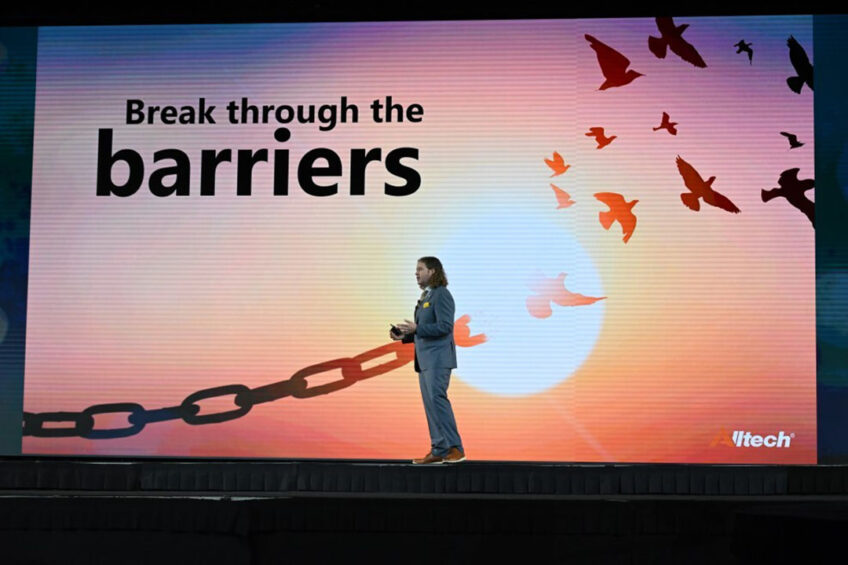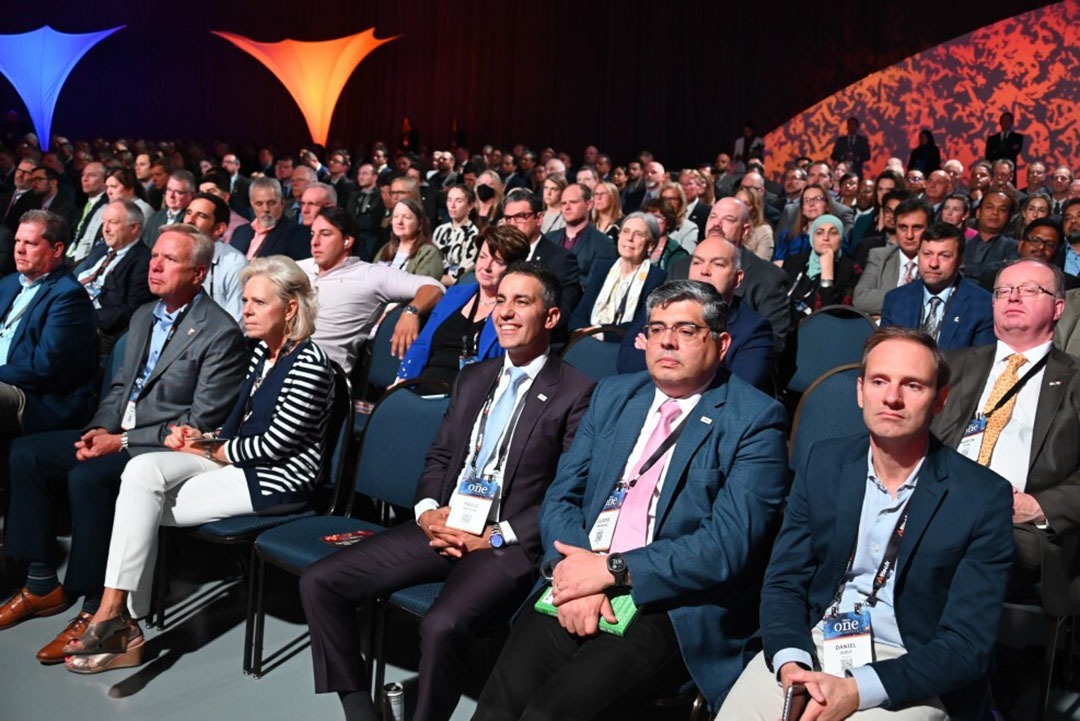Alltech One Ideas conference: “Net zero doesn’t cut it”

The buzzword in many industries around the world is achieving ‘sustainability’ by making operations ‘net zero’. But just as the masses realise that they shouldn’t be using more resources and emitting more pollutants, forward thinkers are getting to grips with the idea that ‘net zero’ isn’t good enough. We should be aiming for ‘net positive’.
It was one of the main mantras in the life of the late Dr Pearse Lyons, ‘Don’t get it right. Get it going’. And the latest edition of the Alltech One Ideas conference carried on in this spirit.
Mark Lyons: “My father was right! It’s not about perfectionism; it’s about progress. If we change the lens and the way we look at things, we can change the way we think.”
In exchanging their ideas, the conference speakers definitely offered a new perspective on sustainability and the steps beyond that. Former Unilever CEO, Paul Polman, shared his point of view on the direction in which the world should move. “‘I need to be sustainable,’ that’s ‘net zero’. But what does sustainable mean? No harm. It’s a very noble thing to do. But ‘sustainable’ means, ‘I keep the status quo of what is currently happening. I sustain it’. And that’s not good enough anymore. A little less bad is still bad. The only way of thinking is to think restorative, reparative, regenerative, and that is what we call ‘net positive’.”
He continued to say that net positive is not about doing less harm but about doing more good. According to Polman, a change needs to happen well beyond the scale of the Industrial Revolution. Increasingly, CEOs are required to be broader social leaders and to partner up within and beyond the industry. Many CEOs are struggling to make changes – and that is normal. The good news, however, is that the greatest challenges also present the greatest business opportunities.
“We are truly at the interface of 2 big ideas: nourishing the present and the preservation of the future.”
“It really is about making a business model where you can show that you profit from solving the world’s problems, not creating them,” advised Polman. “And when you can honestly answer the question, ‘Is the world better off because your business is in it?’ We are at the point, confirmed by study after study, where the cost of not acting becomes higher than the cost of acting,” he said, “which actually makes it an enormous economic opportunity to create this greener, more inclusive, more resilient future and not go back to the past where we came from, which, frankly, had run out of steam.”
Two big ideas
Lyons concluded: “We are truly at the interface of 2 big ideas: nourishing the present and the preservation of the future. Reducing is not enough; we have to do something different. Our belief is that agriculture has the greatest positive potential to influence the future of our planet in that it can provide nutrition for all while helping rural communities to thrive and replenish our planet’s resources.”
One of the ways that agriculture can have a major impact on restoring and conserving the environment is through carbon sequestration, a concept explained by Vaughn Holder, Alltech ruminant research group director. He introduced the audience to an Alltech research alliance called Archbold Expeditions. Based at the 4,050-hectare Buck Island Ranch station in Florida, this research monitors land, nutrient and pollution inputs and outputs to evaluate experimental methodologies and modelling techniques for estimating carbon and nutrient fluxes on working cattle operations.
Vaughn revealed that the data shows us that by implementing pasture management practices, agriculture is in a unique position where it can both provide the food resources that the world population needs while at the same time taking steps that will help conserve and restore the planet. In fact, he stated that by focusing on feed and growth efficiency strategies and carbon sequestration management strategies on grazed lands, we could reduce greenhouse gases by over 50%.
“Our ability to manipulate it is going to become more important,” Vaughn explained. “No one else is positioned in the way we are to do this.”
Endless possibilities
Echoing Vaughn’s message of the importance of conserving the world in which we live, Nikki Putnam Badding, managing director and chief dietitian of Acutia, focused on expanding this theme to the world population. “Sustainability does not begin and end with environmental impact,” Nikki explained. “It actually means that we are taking care of the health of the planet and the people who share it.”

This is of increasing importance as population growth puts extra pressure on our resources. Setting the table for 10 billion people by 2060 needs 70% more food. An impossible challenge? Heather White, author of ’One Green Thing’ knows that it is individual actions that lead to a culture shift towards solutions.
“Every generation stands on the shoulders of the past, and it is safe to say that we are our ancestors’ wildest dream. We have the technology and knowledge to make change happen, we just have to keep asking ourselves, where do we want to stand, 30 years from now? What will be our legacy? With that mindset, instead of carrying on with past principles, the possibilities are endless.”
 Beheer
Beheer







 WP Admin
WP Admin  Bewerk bericht
Bewerk bericht